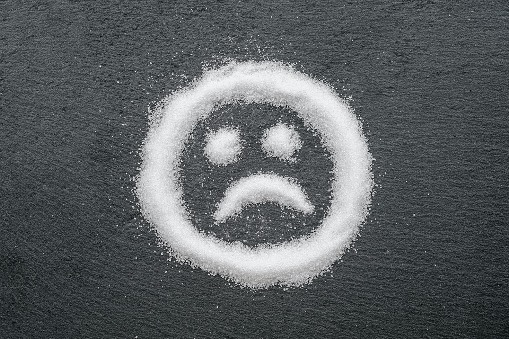- Are you a thinly person?
- Your BMI is less than 20?
- Do you have proper appetite?
- Do you feel any tiredness or abnormal heart beats?
MAY BE YOU ARE UNDER WEIGHT…
What is Underweight?
In medical terms, excessive leanness is also known as “emaciation”. The process by which we lose healthy body weight is called “sarcopenia,” and it is estimated that most adults lose 10 percent of their muscle weight every decade after the age of 40. Thinness or underweight is a condition in a person whose weight is below the normal required weight. This can be determined based on a person BMI or Body Mass Index which is calculated on the basis of his or her weight and height. The body mass index is often used as the criteria to determine if a person is within the normal weight range. BMI<20 is generally considered underweight although people outside this range may still be perfectly healthy. People who are underweight may have an increased risk of anaemia, heart irregularities and osteoporosis. One of the better known conditions associated with low body weight is anorexia.
Causes of Under-Weight
- Decline in anabolic hormones: Hormones will play a major role behind the weight gain and weight loss. Anabolic hormones will helps to maintain the muscle strength. Some weight loss is driven by an age-related decline in “anabolic” hormones such as testosterone, DHEA and growth hormone.
- Absorption: nutritional deficiency will occur when theIntestine may not be able to absorb the essential materials or end products of digestion.Thus lead to underweight and health problems.
- Low (Haemoglobin) Hb% in blood: Haemoglobin is an iron containing protein in our body. Hb will helps to travelling of oxygen in all over the body. The condition in which decreased amount of Hb in our blood is known as anaemia; Weight loss is the associated symptom of anaemia.
- Digestive problems: The individual may not be in the state of having enough food due to some causes like for e.g. -irritable bowel syndrome,colitis.
- Inheritance:Parents or one of the parents has the nature of not gaining weight even though the person involves in any type of food habits or regimen.So this will be inherited by the offspring also.
- Lack of Knowledge: Like the vegetables which he has to take about half the portion of his meal,then fats and carbs together about 1/4 part of his diet,proteins and vitamins to 1/4th part of his meal.We generally say this as stomach may be divided to 3 parts and – 1/3rd of it must be filled with solid food particles ,another 1/3rd must be filled with liquid particles last 1/3rd must be left vacant for the air to circulate and aid the digestion.
Ayurvedic Perspective of Under-Weight
Karshya is the condition of being excessively lean, which is also termed as underweight. Underweight individual bodies are characterized by less muscle mass (shushka), sunken skin (atikrusha), poor development of chest, limbs and buttocks. Karshya is included under Nanatmajavatavyadhi and it is similar to under nutrition or underweight as per its symptomatolgy in modern science. In this condition a person suffers from severe nutritional deficiency, due to which the body becomes very lean, almost to the point of skin and bones, they are extremely thin, and there is almost no observable flesh anywhere on the body. In ayurvedaemaciation (excessive leanness) is considered as shosharoga. Another term for this is karshyameans simply ‘leanness’, which could arise due to malnutrition or due to any other disorder. Shosharoga is leanness especially due to malnutrition. In this manner, shosharoga and karshya are both distinct disorders, though the symptoms may be the same.
Ayurvedic Remedies of Under-Weight
Ayurveda treats underweight by bringing the hyper metabolic state to normal levels through building up body fat and muscle mass. Ayurvedic herbs for weight gain help reduce the bad cholesterol and increase the good cholesterol levels in our body and hence maintain the required weight. Abhyangawith Tila oil and Nadisweda followed by MatraBasti with AshwagandhaGhritahave proved to be effective for weight gain in children with underweight. Daily intake of figs (anjeer), almonds and date palm along with warm milk increases weight. Having banana at least three times a day is very useful in gaining weight. Intake of 30 grams of raisins daily helps in increasing body weight by increasing metabolism. In summer, taking mango with milk helps in increase in fats and proteins in your body. Dairy products like cheese, paneer (milk curd cheese), curd or milk helps to increase weight in an individual without increase in cholesterol. Avoid food items that are made from white flour or sugar as they may increase weight but tend to harm the body.Some of herbs found to be effective in increasing weight in underweight individuals are: are listed below:
- Ashwagandha: It offers deep nourishment to the tissues, supports the proper functioning of the adrenals, bolsters the immune system, and helps to build ojas. It is also a highly regarded adaptogen that helps the body to resist stress—preserving vital energy during the day and encouraging sound sleep at night.
- Shatavari: It helps to strengthen and nourish the tissues while supporting both physical and mental digestion. Shatavari is also very sattvic(pure and harmonious) in nature, so it supports a calm mind and helps to promote love and devotion in our lives.
- Chyavanprash: It is a traditional Ayurvedic herbal jam made in a base of amalaki This will helps to rejuvenating the all body tissues, buffer the body against stress, and bolsters the immune system. A daily dose of this nutritive jam can support energy, vitality, and overall well-being.
- Triphala: It is revered for its unique ability to gently cleanse and detoxify the digestive tract, while restoring, nourishing, and rejuvenating the tissues. It encourages balanced agnithroughout the system, helps to eliminate ama, and supports ojas.












